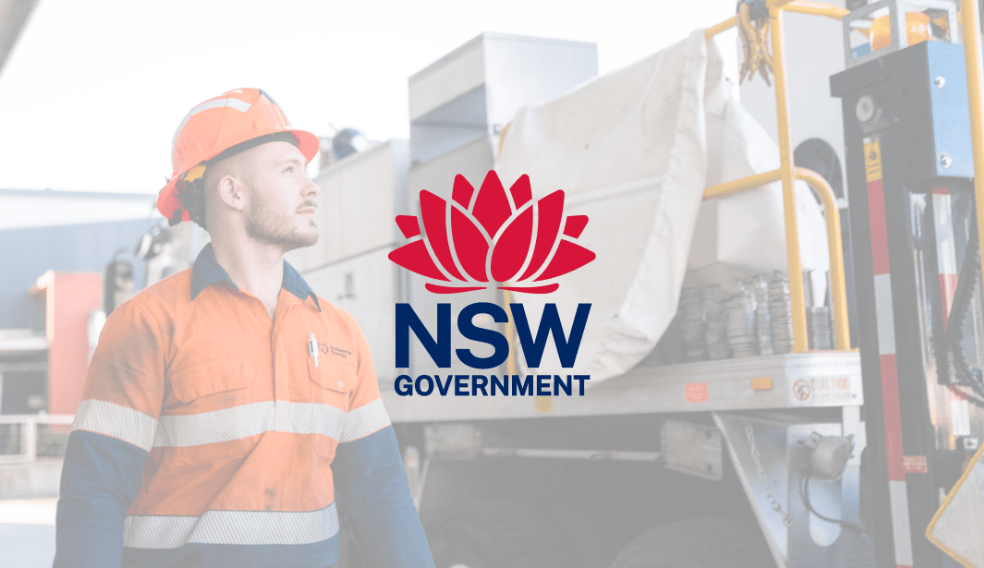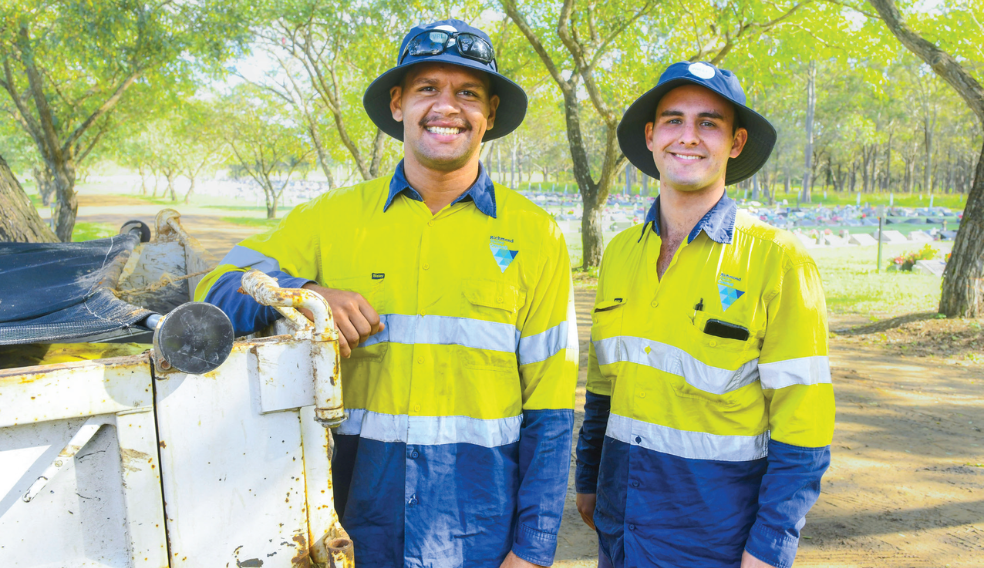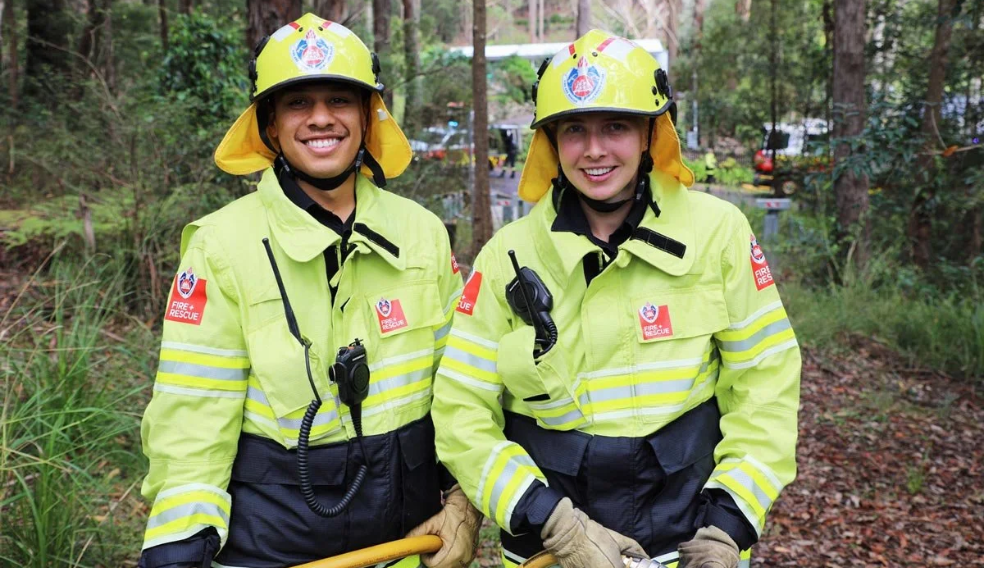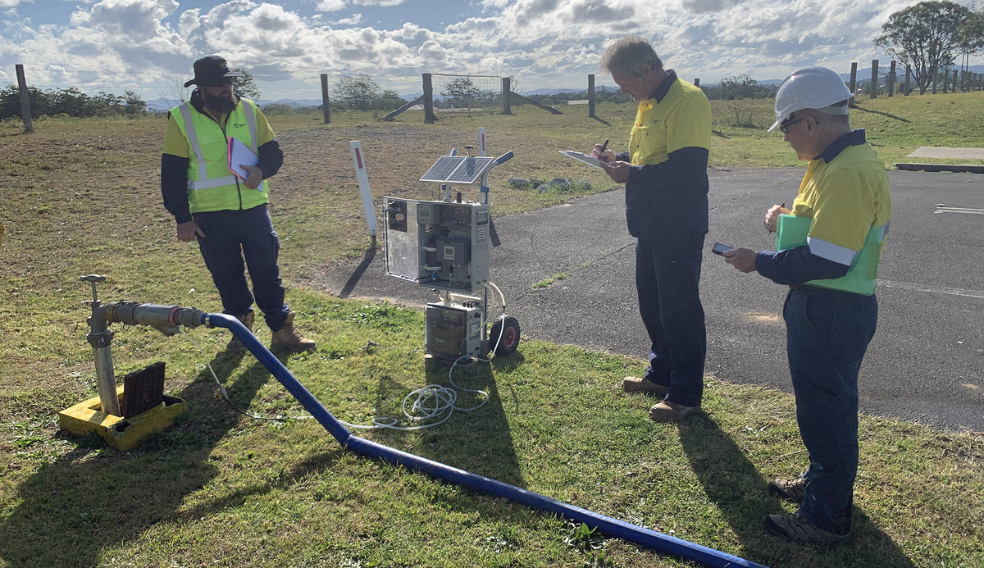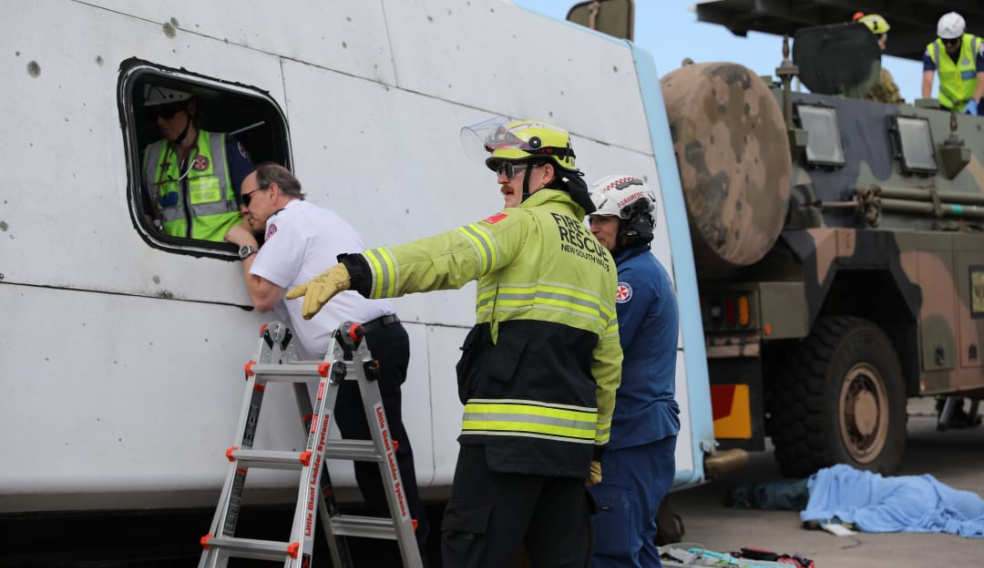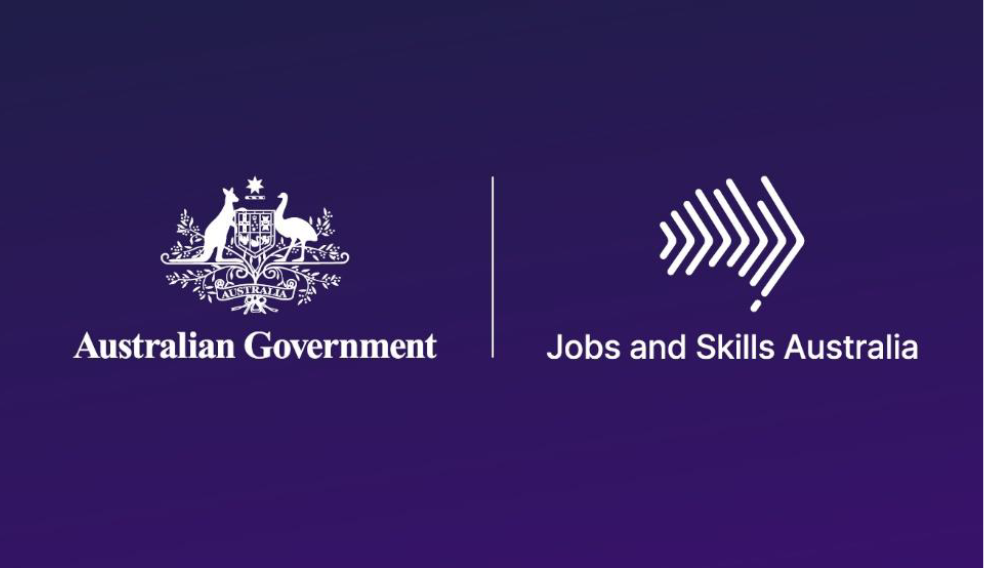Sep 16, 2025
NSW Public Sector ITAB September 2025 Newsletter
Convened by the NSW Public Sector ITAB, the GTAN and WTAN forums bring together stakeholders from the Government and Public Safety Skills and Training Network (GTAN) and Water Industry Skills and Training Network (WTAN) to exchange information and insights related to workforce development within the government, public safety, corrections, and water sectors across NSW.
Our next online network forums, are scheduled for 23 & 24 September and will feature guest speakers from a range of sectors, sharing information on emerging trends, innovative practices and skills & training challenges. The Jobs and Skills Councils (Public Skills Australia and BuildSkills Australia) will provide updates on national projects impacting our sectors and the Office of Local Government will share workforce development initiatives supporting the current NSW Fresh Start A&T Program. In the GTAN forum, Guide Dogs Australia will help build awareness of access rights for dog handlers and assistance animals in a public sector context while in the WTAN, there will be an opportunity to hear about new practices in stormwater harvesting.
Government and Public Safety Skills and Training Network (GTAN) Forum
(Includes all government agencies, Local Councils, Correctional Services, Public Safety, Police & Defence)
Date: Tuesday 23 September 2025
Time: 10:00am - 11:30am (AEDT)
Water Industry Skills and Training Network (WTAN) Forum
Date: Wednesday 24 September 2025
Time: 10:00am - 11:30pm (AEDT)
NSW Apprenticeship and Traineeship Act under review
The Apprenticeship and Traineeship Act 2001 (A&T Act) is currently under review as the NSW Government looks to modernise the legislative framework and strengthen the delivery of apprenticeships and traineeships. The aim is to ensure the system remains inclusive, flexible and future-focused, meeting the needs of a rapidly changing workforce and emerging industries.
The review will focus on five reform directions:
- Strengthening protections and safeguards for learners
- Clarifying responsibilities for employers and training providers
- Expanding flexible training options
- Supporting learner progress and improving completion rates
- Simplifying and modernising the system.
Stakeholder engagement is central to the review. Apprentices, trainees, employers, training providers, industry representatives, community organisations and the public are all invited to contribute their perspectives. While the targeted surveys closed on 11 September, broader submissions remain open until 17 October 2025 via the consultation paper and response form.
For more information or to engage directly, contact ATActReview@det.nsw.edu.au
NSW Fee-Free Traineeships extended to 2027
Traineeships continue to offer a strong pathway into secure, well-paid jobs across a wide variety of industries—and in NSW they are now even more accessible. The NSW Government has extended its Fee-Free Traineeship initiative until 30 June 2027, removing course fees of up to $1,000 for eligible participants.
Traineeships combine paid on-the-job experience with formal study, usually taking between one and two years to complete. They provide practical skills and recognised qualifications that employers value. Currently, more than 390 traineeship courses are funded under the state’s Smart and Skilled program, covering areas such as early childhood education, health and allied services, business, IT, hospitality, and warehouse operations.
Fee-free traineeships are open to new entrants and school-based trainees whose training is funded under the NSW Smart and Skilled program and commenced before 30 June 2027. This initiative covers tuition costs thereby removing some financial barriers for jobseekers to start a traineeship, or for employers to take on and support new trainees.
Further information can be found on the Skills NSW website.
NSW Skills Plan 2024–28 – Strengthening VET for a future-ready workforce
The NSW Government has launched the NSW Skills Plan 2024–28: Building Skills and Shaping Success, the first state skills plan since 2008. Developed in response to the NSW VET Review and aligned with the National Skills Agreement, it sets a bold reform agenda to modernise vocational education and training (VET) and address critical workforce needs.
A new system stewardship approach will strengthen collaboration between government, industry, training providers and other stakeholders. The plan focuses on industries with persistent skills shortages, including construction, digital and cyber security, and the net zero energy transition.
Supporting resources include the Interim Skills Outcomes Framework, the 2025 State of the System Report, an upcoming Skills Outcomes Dashboard, and an updated Critical Skills Areas Data Appendix (using ANZSCO codes until the shift to OSCA in 2026). Together, these tools aim to guide decision-making, improve transparency, and ensure NSW has the skills for future growth and resilience.
Seeking feedback on industry training priorities in public sector industries
NSW ITABs are calling out to their industry stakeholders to provide information and feedback on training priorities which will support decision-making on training and funding initiatives over the next few years.
The NSW Public Sector ITAB is in the process of collecting data from its networks to inform an Industry Training Priorities Report. To ensure all stakeholders have a voice in future training system solutions, the ITAB needs to gather accurate and relevant information directly from the various sectors.
The ITAB has prepared a survey to collect feedback on training priorities specific to the government, public safety and water industries. This information will help inform future training and funding initiatives and equitable access to training across metropolitan, regional and remote NSW.
The survey is industry focused and anonymous. The questions are linked to aspects of the NSW Skills Plan 2024-28 and aim to draw out the challenges for our sectors in reference to the Plan’s strategic priorities.
Please take time to complete the Training Priorities Survey by Monday, 22 September 2025.
Conference urges action on risks to NSW water security
The 2025 LGNSW Water Management Conference in Albury brought more than 200 delegates together to focus on urgent risks to local water utilities (LWUs) and the communities they serve. Discussions centred on the need for a more streamlined, risk-based regulatory approach and long-term funding to keep services safe, reliable and affordable, particularly in regional and rural NSW.
LGNSW highlighted the scale and importance of council-run LWUs: 89 utilities operating across roughly 700,000 km² and supplying around 1.85 million people and 890,000 homes and businesses. Delegates warned that duplicative planning and reporting requirements are draining resources without improving outcomes and called for reforms that keep LWUs in local government hands while focusing regulation on real risk.
Top risks and priorities flagged
- Funding security & asset renewal: A capital works backlog already exceeds $5 billion and likely to grow as new risks are factored in. Councils need predictable state co-investment to upgrade ageing networks.
- Smarter regulation: Shift from “reporting for reporting’s sake” to risk-based oversight that reduces duplication and frees up operational capacity.
- Contaminants & extremes: Continued action on PFAS, plus stronger drought preparedness and flood recovery after recent events.
- People & capability: Address skills shortages across water operations to maintain service quality and resilience.
- Program continuity: Extend the Safe and Secure Water Program and Town Water Risk Reduction Program beyond 2028, co-designed with LWUs to stay fit-for-purpose.
The full media release can be accessed on the Local Government NSW website.
NSW Training Awards 2025 highlights regional talent
The 70th NSW Training Awards celebrated outstanding achievement in vocational education and training, with regional NSW taking centre stage. Among the winners was Imogen Young-Maloney, a Business Support Officer at Wagga Wagga City Council, who was named NSW Trainee of the Year. Imogen was recognised for her resilience and proactive problem-solving, as well as her advocacy for VET pathways.
A champion for VET opportunities, Imogen Young-Maloney said there was ‘no one size fits all’ solution to education and careers and attributed her Certificate III in Business to laying the groundwork for her success. She has played a hands-on role in Council’s rebranding of their learning organisation and in supporting its trainees and apprentices’ program. This work directly influences young people who are unsure whether a university or VET pathway is best for them. Imogen suggests that it’s more about the many different pathways you can take towards a very satisfying career.
Winners now progress to represent NSW at the Australian Training Awards in Darwin on 5 December. Full details of the NSW Training Awards can be found on the NSW Government website.
Consultation open for a review of the Australian Apprenticeship Priority List
The Department of Employment and Workplace Relations (DEWR) has opened consultation on options to refresh the methodology behind the Australian Apprenticeship Priority List, the list that underpins eligibility for Commonwealth apprenticeship incentives.
The discussion paper, released on 4 September 2025, proposes new principles and an updated approach that goes beyond the current reliance on ABS occupation classifications and Jobs and Skills Australia shortage analysis.
This work follows the Strategic Review of the Australian Apprenticeship Incentive System and aims to create a more robust, transparent and responsive process that better aligns with Australia’s economic and social objectives. Stakeholders are invited to consider how evidence should be weighed, how often the list should be reviewed, and what safeguards and transparency measures should apply.
Why it matters: the Priority List shapes which apprentices and employers can access incentives, influencing workforce pipelines, training delivery and planning across sectors. Industry employers, RTOs, unions, peak bodies and government agencies, particularly those in NSW public sector–aligned industries (local government, water, public safety, corrective services, police and defence) are encouraged to read the paper and lodge a submission via DEWR’s Consultation Hub.
Submissions close at 5:00 pm AEDT on 17 October 2025.
Maclean Fire Station calls for next generation of recruits
Fire and Rescue NSW (FRNSW) is seeking to boost firefighter numbers in the Clarence Valley by recruiting new on-call firefighters for Maclean Fire Station. The town of around 2,700 residents is currently facing a shortage and needs community members to step forward for these paid, flexible roles.
Superintendent Greg Lewis, FRNSW Zone Commander, highlighted the importance of on-call firefighters in regional communities, noting that the role allows people to balance existing work and family commitments while making a vital contribution. Training is provided both online and in person, with ongoing professional development to ensure firefighters are ready for all types of incidents.
FRNSW is encouraging applications from people 18 years and over and is particularly keen to build more diverse local crews that reflect the communities they serve.
For details on how to apply, visit their website.
New support resources for regional water sector
The NSW Department of Climate Change, Energy the Environment and Water (DCCEEW) have released additional resources to support workforce development of the NSW regional water sector.
DCCEEW has released the Water Industry Traineeship Guide to help local water utilities and councils develop structured, inclusive pathways into the sector, whether for school-based trainees, post-school entrants, or people moving from other fields. It covers recruitment, training, financial incentives, and how to support trainees to succeed.
It has recently published its Workforce Development Roadmap for Local Water Utilities. Using data from the 2024 Workforce Composition Survey and wide consultation, the roadmap outlines strategic challenges, opportunities, and priority actions to build a more resilient, skilled and inclusive LWU workforce. Focus areas include attraction, career progression, quality training, and better collaboration across agencies.
DCCEEW is also providing a platform on its website to view current recruitment opportunities for entry level traineeships which includes an interactive map and list of Local Water Utilities (LWU) under councils that have upcoming school-based traineeships (SBATs), traineeships, apprenticeships or cadetships.
SBAT intakes are generally aligned with the school year or specific months (e.g. August-November) depending on the council.
FRNSW leads major multi-agency training exercise
Fire and Rescue NSW (FRNSW) has coordinated a large-scale emergency response drill in Lake Macquarie, marking the fifth and most complex exercise of its kind. The scenario simulated a serious collision involving an Australian Defence Force (ADF) Army heavy vehicle, a bus, a flat-bed truck, and multiple cars, testing how emergency services respond to multiple casualties in challenging conditions.
Firefighters from five FRNSW stations joined forces with NSW Ambulance, the NSW Rural Fire Service, ADF personnel, and bus operator, CDC NSW, who hosted the exercise at their Edgeworth bus depot. Mannequins and role-playing were used to replicate injured passengers, while crews practised using hydraulic cutting tools, patient rescues, coordinated medical responses, and scene management.
The details of the scenario were kept secret until crews arrived, ensuring authentic reactions and teamwork. The inclusion of ADF vehicles and personnel provided valuable insight into Defence capabilities and equipment, enhancing inter-agency preparedness.
FRNSW Acting Chief Superintendent Matthew Waldon emphasised that these exercises build trust, strengthen communication, and prepare emergency services to respond quickly and effectively in real-life crises.
Read the full article on the Fire and Rescue NSW website.
JSA releases landmark Gen AI Capacity Study
Jobs and Skills Australia (JSA) has released the nation’s first labour-market wide study on the impact of generative AI (Gen AI). The Gen AI Capacity Study finds that AI is more likely to augment jobs than replace them, with the greatest potential in boosting productivity, reshaping work, and creating new opportunities.
Key findings:
- Gen AI enhances roles by automating routine tasks rather than removing jobs.
- Adoption is at an early stage, varying across industries, occupations and regions.
- Many workers are already using tools independently.
- Developing the right skills and adaptability will be essential.
- Adoption is at an early stage, varying across industries, occupations and regions.
- Many workers are already using tools independently.
- Developing the right skills and adaptability will be essential.
Study outputs include:
- Overarching Report – Our Gen AI Transition - Implications for Work and Skills outlines findings, challenges, and policy implications.
- Analysis Papers – five detailed papers covering exposure, adoption, adaptation, labour market dynamics, and skills.
- Case Studies – showcasing practical examples of how industries and workers are adapting.
- Data Releases and Chart Packs (due to be released 30 September) – to support further research and workforce planning.
This study provides valuable insights for policy makers, industry, and training organisations preparing for Australia’s digital and AI transition over the medium term
National Jobs and Skills Councils Update
Jobs and Skills Councils (JSCs) are a national network of industry owned and led organisations, designed to provide leadership in addressing national skills and training needs. They have been established to supply industry with a strong and strategic voice within the VET sector as part of broader government-led skills reform.
JSC activities including Workforce and Training Package projects relevant to Public Sector industries are listed below.
BuildSkills Australia (BSA): BuildSkills is conducting both Training Product and Research Projects which can be accessed using the links below:
- White Card Implementation
- Minimum Australian Context Gap Training for Migrant Plumbers
- Utility Locating
- Civil Construction Review
- Hydrogen Skill Needs in the Plumbing and Gas Industry
- Insulation Installation & Inspection
- Urban Pest Management Review
- VET Future Readiness Review
- Formwork Falsework Training Product Review
- Swimming Pool and Spa Service Review
Water industry stakeholders should reach out to George Wall for any specific water sector issues.
Future Skills Organisation (FSO): FSO has a range of Projects underway which can be accessed using the links below:
- Supporting Generative AI Adoption by Workers: The Role of Employers
- ICT Training Package: Needs and Gap Analysis
- Qualification Design to Support Digital Capability
- Uplift Digital Capability
- BSB Training Package (TP) Update: Safe and Respectful Workplaces Unit of Competency (UoC)
- Entry Level Pathways
- Digital Capability Training Product Trial (TPT)
- Public Skills Australia (PSA): Access PSA’s current projects via the links below.
- Review of Procurement and Contracting Qualifications
- POL - Police Training Package Release 11
- Defence Cyber Risk Assessment
- Volunteer Leadership Project
- Review of Government Investigations Qualifications
- Police Crash Investigation and Analysis Review
- Correctional Services Implementation Findings Report
- Local Government Skills Audit
- Auslan, Interpreting and Translating Qualification Review




